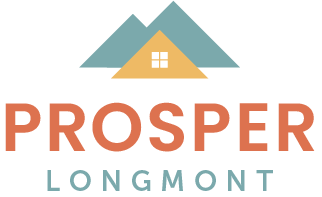By Ricardo Cabrera, Founder of myWealthBeing.com
Home ownership is an economic development catalyst for both individuals and communities and is the easiest and safest vehicle to ignite individual wealth creation. It is also an important factor to assist in ensuring a safe and secure retirement. There are several major benefits to home ownership that you might not have thought of.
Community Economic Development
When a new homeowner first moves in, they almost immediately go out and purchase stuff to fill the house; everything from furniture, drapes, appliances, and more. That same new homeowner also has to pay for utilities and taxes. These activities, of course, create jobs and therefore feed the economy. For the homeowner, it creates stability and security, which will promote health, happiness, and upward mobility. It will also does the thing the homeownership does best: create personal wealth. Homeownership is so important that not only does the federal government promote it, but state and local governments do so as well, they all offer incentives for individuals to become homeowners.
Wealth Generation
Homeownership is one of the greatest creators of wealth. Think on this: you can borrow for a home for as little as three percent down payment, yet your loan is going to grow at the rate of a much larger number – the value of the house. So if you buy a home that is worth $350,000 with a three percent down payment ($10,500) and borrow the rest ($339,500) and that particular home grows at a rate of three percent, in five years you’ll have a home that is worth $405,476 and a loan that has been paid down to $311,750. All of that math means that your initial investment of $10,500 has grown to $93,988! (Drop the mic!) In 30 years, your home will be paid off and should be worth somewhere around $850K. (Drop the mic again!) I would expect one may sell their first home and buy an upgraded home once or twice during their lifetime, which is okay and as long as you keep your real estate money in real estate this strategy will work as advertised. In other words, buying and owning your house is the safest vehicle to create wealth. And, as an added bonus, it comes with a tax deduction; all the interest you pay on your loan is a tax deduction, similar to the standard deductions you get every year, and it helps you pay less taxes.
Retirement Security
Why is it important for individuals to own their home? Besides the obvious reasons like safety and security, and wealth generation, it also presents a safer retirement benefit. If you look at it from the economic life cycle of an individual, we all have what we call our accumulation years; these are our working years when we accumulate wealth. Then we have the depletion years; these are the years where we are not working anymore, our income may be minimal if any and, therefore we live off our accumulated wealth. How long will that last? A simple math calculation will answer this question, but I can tell you this for sure: If you own your home, it will last twice as long. Add this to your other investments like a 401K or Roth IRA and you have a much better chance that your money will last, or better yet, outlast your lifetime, thus creating generational wealth.
The Three Steps to Buying a House
OK, you might say to yourself, that’s great, but how can I buy a house for myself if I can barely make ends meet as it is? It takes a dream, a plan, some discipline, and maybe a little compromise. What this means is that you need to create a sustainable financial ecosystem that is geared towards wealth generation.
It boils down to a simple three step process. One: Live below your means to the point where you can save 15-20 percent of your income. This will allow you to two: Get out of debt, and put together a three- to six-month emergency fund. Once you have done this, you can start on three: Saving for a down payment for your home. In reality you are almost there. All you need is to grow your emergency fund to nine months; you’ll use six months of that for a down payment and then go back to step one. If you can follow and achieve these three building blocks, it is highly likely you’ll be able to secure a loan and become a homeowner. Just remember, your first house is not your dream house.
Accessible and Attainable Housing
Accessible and attainable housing is a topic of much deliberation these days, for all the right reasons. Thankfully, there are programs available now (or in the works) to allow an individual to be able to achieve homeownership. Prosper Longmont is one such program. The organization is made up of a group of residents and business owners who have come together to work on making accessible and attainable housing a reality in our community.
Just keep in mind that the common denominator for all homeowners is securing a loan and the only way to do so is achieving a sustainable financial ecosystem.
Some Facts
- 44 percent (63 percent) of all (minority) families do not have sufficient liquid financial assets to sustain their households at the poverty level for three months if they lose their income.
- 36 percent of all senior citizens are at risk of outliving their resources. A large percentage of the elderly population lives on the precipice of economic insecurity.
- 54 percent of all U.S. households lack sufficient financial assets to make investments in opportunities that increase financial mobility, such as buying a home, creating a business, or investing in their children’s education.
Reference: Asset Funders Network Brief
Ricardo Cabrera is a business professional and real estate agent. He focuses on helping with wealth building matters, from assisting people in buying or disposing of their home, their most important asset, to assisting on business matters through the Latino Chamber of Commerce and coaching the NAHREP10 disciplines on wealth creation. Ricardo believes in working hard, living on less than what you make, and investing the difference with the ultimate goal of reaching wealth.

